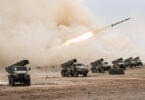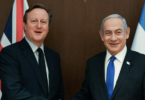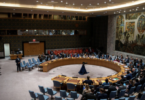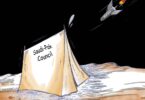Monitoring Desk
In the midst of the impeachment investigation into President Donald Trump, Russian hackers attacked the Ukrainian gas company linked to the inquiry, according to cybersecurity experts.
Researchers at Area 1, a security company run by a former National Security Agency official, said Russian hackers sent phishing emails to subsidiaries of Burisma Holdings to try to penetrate the Ukrainian energy company. The email accounts of Burisma employees were accessed, but it’s unclear how that was used or what material may have been gained, according to the report released Monday.
Hunter Biden, the son of Democratic presidential candidate Joe Biden, was on Burisma’s board from 2014 to last year. Trump’s personal lawyer, Rudy Giuliani, has alleged that the elder Biden, as U.S. vice president, derailed an investigation into Burisma to protect his son. In a July 25 telephone call, Trump asked Ukrainian President Volodymyr Zelenskiy to “look into” allegations of wrongdoing by Biden. A whistle-blower’s complaint about the call triggered the impeachment inquiry, which began in September.
Hackers for the Russian intelligence agency GRU began attacking Burisma as early as November, according to Area 1.
The timing of the alleged attacks, months ahead of the first presidential primary, “is an early warning” of the style of attacks foreign adversaries may use to influence the 2020 presidential election, Area 1 said in its report. The tactics of Russia’s GRU were similar, if not identical, to the methods used in 2016 to hack emails from Hillary Clinton’s campaign and the Democratic National Committee, Area 1 said in the report. The report didn’t explain if the attacks have stopped.
“All cyber-actors have goals, and they figure out what works to guarantee that they are successful with the least resistance possible,” according to the report. “The Burisma Holdings campaign is yet another example of the phishing playbook being applied to great effect.”
Area 1’s report was reported earlier by the New York Times.
Courtesy: (Bloomberg)






